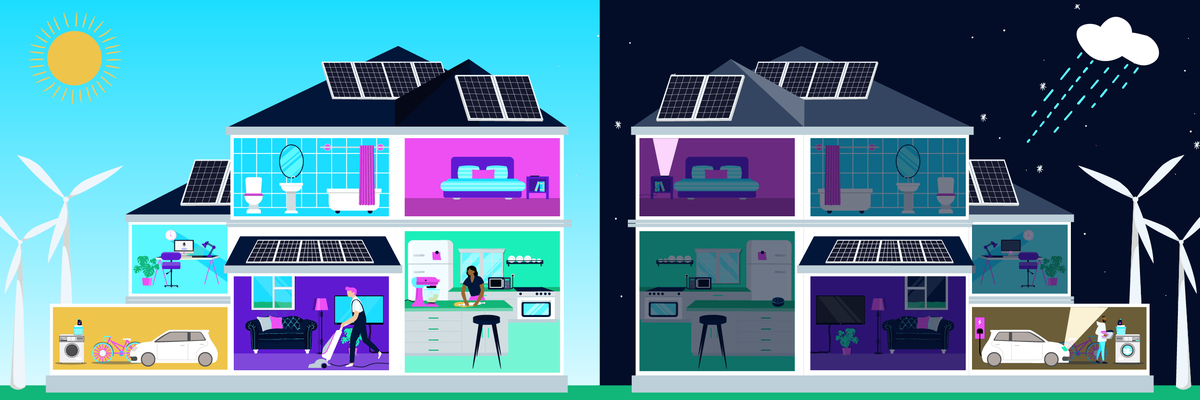The Big Switch On: Can we make the most of renewable energy when it’s available?
Covid-19 has had a massive impact on how energy is being used across the UK. On average overall demand is down 20% since lockdown, and with two bank holidays in May, we’ve seen a combination of record low levels of demand with large amounts of renewable energy from solar and wind.
In a way, this has given us the ability to take a sneak peak into the future. A future where large amounts of green energy are available at zero marginal cost – if we can make the most of it.
But without changing some old habits, the volatile nature of renewable energy – driven by fickle British weather – will make the job of balancing the grid increasingly difficult and expensive.
There’s plenty of bits of clever technology that are well positioned to help with this problem – battery storage, either in the home or on the driveway, will play a big role.
A growing number of smart products around the home are becoming wise about when they use energy, thanks to API driven energy signals, such as those from our Agile Octopus tariff.
However cars, batteries, and smart home products are expensive, and out of the reach of many.
To achieve a zero carbon energy system sooner, we need new ideas that everyone can benefit from.
So we used the unprecedented events of May to run a series of trials, to understand whether there was another way.
What did we do?
Over the course of the two bank holidays, we invited just over 100K customers with eligible smart meters to join our trials. This is effectively a random sample of Octopus customers, aside from a slight bias towards customers in the North of England due to the nature of the smart meter rollout.
Customers were offered the opportunity to be paid for the electricity they used during key times – times at which there was either extraordinary supply from solar & wind, or unprecedented low demand, such as the wee hours of the morning.
The rewards on offer weren’t large: the average customer earned under 50p for joining in one of our trials. This was intentional – we’re interested in whether small nudges can have a big collective impact, much like the 5p bag levy, and the incentives are in line with what we could realistically offer customers given small but meaningful changes in the existing energy system.
How did it go?
We had a fantastic response, with over 50K participants across our six trials. Encouragingly, we also saw real behaviour change.
On the second bank holiday weekend, Octopus customers used an additional 71MWh of electricity in the trial windows – more than 200% above what was forecast. For comparison, Europe’s largest grid-scale battery at Gresham House in South Yorkshire has a total capacity of 75MWh, so this is genuinely significant.
This kind of “collective flexibility” has never been seen before, but shows real potential as a new method to help us keep a balanced grid as the UK’s energy mix grows ever greener.
If you'd like to know more about our May smart trials, take a look at our original post for customers getting involved.
Published on 3rd July 2020 by:
Hey I'm Constantine, welcome to Octopus Energy!
×Close window

